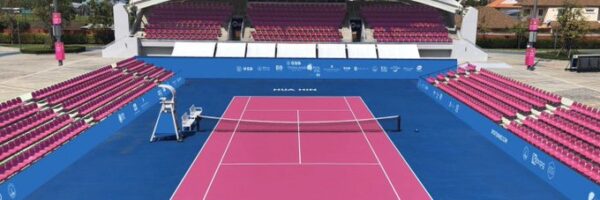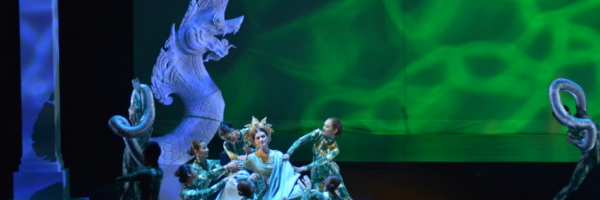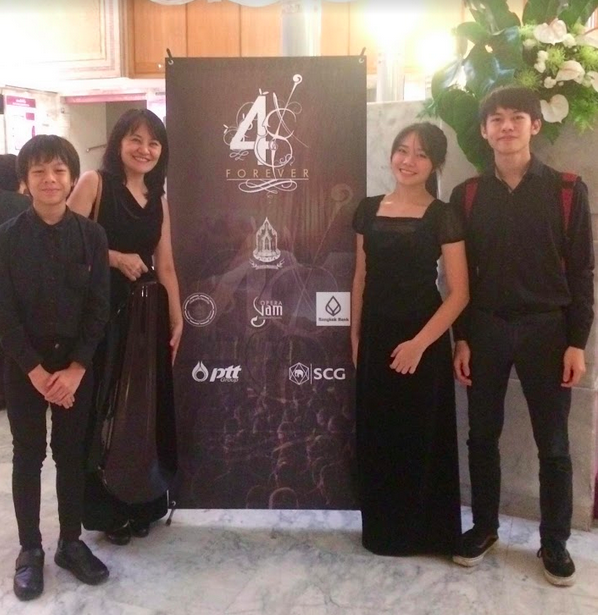
Moms that make the opera sing
This World Opera Day, we take a peek behind the scenes and talk to a group of moms who supported their children’s passion to perform opera.
Backstage, Thailand Cultural Centre Big Hall. It’s three hours to curtain. Shilpa Patil is seated with a full makeup box balanced on her hand, putting the finishing touches on daughter Chantal’s lips. Nearby, Kumiko Suito keeps an eye on the makeup artists as they dab foundation on daughter Ruby’s cheeks, while Rieko Nishijima checks in on Rom, Emm, and Rit and sees to it that they are in costume, have had enough to drink, and are not horsing around.
These are the “opera moms”—honorary members of the chorus and beloved by the choristers. Today, the children – ranging from 14 to 21 years in age – are seasoned opera veterans, having performed all together over 15 operas within a span of 7 or 8 years, primarily with Opera Siam led by Maestro Somtow Sucharitkul.
Being in an opera is a wild fantasy for most of us; an impossibility – which it would indeed be in the West. But the still-growing opera scene in Thailand offers many possibilities, even for the youngest of singers. Rit was just 5 years old when he joined. When brother Rom (then 13) and sister Emm (then 11) went to audition for the children’s choir, they asked Somtow if Rit may also join. “Maestro asked Rit’s age. Rit answered ‘I’m almost 6’ (he was only 5 and a half or so)” laughs mom Rieko.
But the episode convinced her that her children were serious about singing. The moms emphasise it was their child’s choice to take part. Shilpa says her daughter leaped at the opportunity to audition. “She assured me she would be okay even if she didn’t get in because she just wanted to meet Somtow in person.”
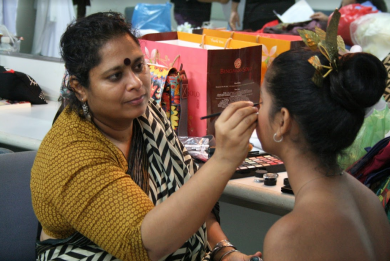
While being an opera parent involves many hours of chaperoning, that’s not all. “Maintaining health was our biggest concern,” says Kumiko. As rehearsals and performances ran late hours, ensuring the children got proper nutrition and enough sleep was a major concern. Shilpa helped her daughter manage chronic anaemia, while Rieko prepared boxed meals and herbal drinks for her children’s 1.5 hour ride to rehearsals. “They couldn’t wait to get the box meals provided by the opera!”
Most parents want to support their children’s passions, but it’s not always sweet and rosy. “I believe that if (my children) have true interest and passion and make the effort without being forced, they will know what they need to do,” says Rieko. “Otherwise, I would stop them from performing. I kept telling them, ‘Remember you are incredibly lucky to be on the same stage with serious performers and professional staff!’ – because my three kids were always having too much fun!”
Shilpa concurs. “It was hard in the beginning – the 3 hour rehearsals were long and tiring.” But she would remind her daughter “what a privilege it was to get this opportunity. To learn and work with outstanding performers and professionals.”
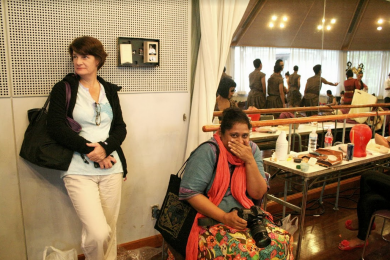
Of course, the children were still children. “There were ups and downs, tears and tantrums… but then they were just kids working on an adult schedule. As moms, we just had to float through ‘crisis’, sometimes by giving in and letting them have their way,” says Shilpa. Asked what kept them going, Kumiko confessed that “After going through all the tiredness and madness of each production, I’d always think that was the last time we would join – but always when the next opera was announced, we’d end up joining again – almost like an addiction to the excitement!”
The children enjoyed themselves despite the exhaustion. The rehearsals energised them: “They couldn’t stop singing in the car going home,” says Rieko. Shilpa notes “It was possible only because my daughter was interested and dealt with challenges in her own way. I still remember how animatedly we would chat on our way home over whatever new we learned or noticed.” Through the experience, the children “learned not only music, but about how many people are involved backstage and how professionals take care of themselves. They got into the habit of managing their time – otherwise they couldn’t do their homework,” says Rieko.
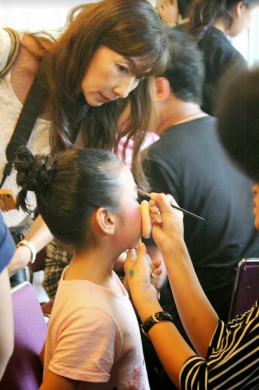
Kumiko agrees: “My daughter learned not only singing, acting, and how to move around on the stage but also time management. The big stage experience gave her confidence for any kind of presentation. Despite the hours of rehearsals and practice before the shows, it was all worthwhile at the end of the day.”
The moms gained something as well. Coming from an Indian classical background, Shilpa enjoyed “being part of rehearsal – indirectly! For me this was all new. I grew up with Indian classical music, where the structure is loose and open to interpretation, while Western classical is followed mostly to the T. I would get to chat with Somtow about operas, music, his writing, and use of certain instruments. It was fascinating!”
Best of all, they forged lifelong friendships with each other (including one other opera pair, Carolina Tapia-Ruano Ferrand and daughter Thalassa). “One of the best parts was making new friends – our mom group was special: apart from gossiping, we shared our worries about our children and solutions. It was our support group,” says Shilpa. Rieko agrees. “We were on the same team, creating one stage. Opera Siam’s moms are awesome and amazing great mothers. My children kept going despite the tough schedule thanks to their opera siblings.” This World Opera Day, we toast these lovely moms!
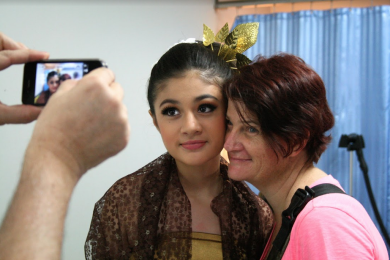
What was your proudest or most memorable moment?
“When Somtow brought the cast of the opera Brundibar to Nation TV. They were on TV and introduced themselves. Ruby was so excited.” – Kumiko
“I got upset when my two boys were horsing around backstage on performance day. I told them that the others were serious about their work. ‘Performance starts from backstage and the gods of the stage will punish you if you misbehave. You will never be allowed to join again.’ After that, they would pay their respects at the backstage shrine before each performance.” – Rieko
“After watching Chantal’s Indian classical dance performance at school, Somtow wrote a small part of wedding dancer in his next opera, Suwana Sama, in 2017.” – Shilpa
Something surprising about opera in Thailand?
“One time, a chorus member just showed up on the performance day without joining any rehearsals and he managed to take part! I thought, wow this is Thailand!” – Kumiko
“Maestro Somtow would give incredible opportunities to young children – a bit like throwing a puppy into a pond and letting it swim by itself. As Master Yoda said, ‘Do. Or do not. There is no try.’ It was always thrilling!” – Rieko
The Moms
Kumiko Suito is a Japanese national married to a Malaysian Chinese and living in Bangkok for over 25 years.
Rieko Nishijima is a Japanese musician married to a Thai, living in Pathum Thani for 22 years.
Shilpa Patil lived in Bangkok 2006-2018. She works in the public health field through consultancies and online counselling.


